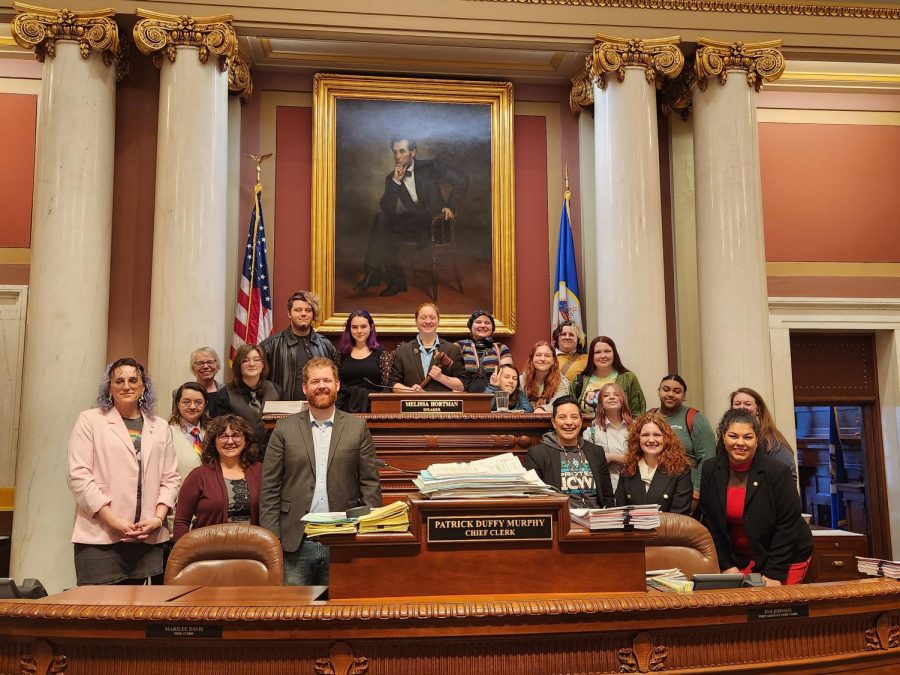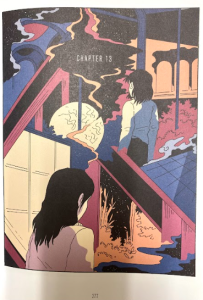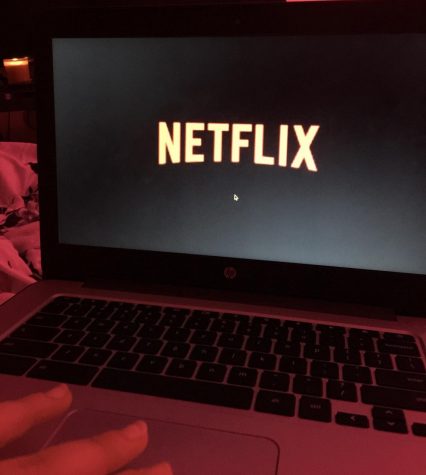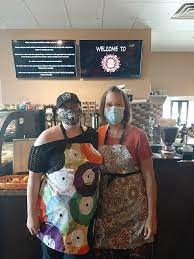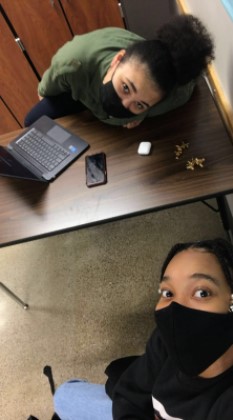The Florida Project — Disney’s Forgotten Silhouette
January 13, 2022
It’s a new morning and two children are looking forward to another menacing plot against their neighbors and the motel’s manager. After waiting for another friend to join them, the children set off to go sit at the top of the balcony to shoot spitballs at a lady’s rundown car. Don’t worry they’re completely harmless. Maybe. The Florida Project isn’t necessarily a movie about Florida and its otherworldly locals. But it’s definitely one of those movies that’ll have viewers realizing how horrendous elementary kids are.
Directed by Sean Baker, The Florida Project is a drama film that leads viewers through the shadows of Disney World. Traveling into the lives stored within a motel known as The Magic Castle. Specifically, viewers get an insight on a six year-old girl who’s name is only known as Moonee (Brooklynn Prince), and her jobless mother Halley (Bria Vinaite). As they try their best to make it out of trouble in Kissimmee, Florida, they are challenged by homelessness, poverty, and authorities. Moonee and Halley’s bond is inseparable and they both give off a free-spirited attitude throughout the movie. Halley is still trying to live her young adult life while raising a kid in a one bedroom motel. However, she gets into a lot of trouble with management and officials. But selling perfumes to tourists and getting money from her friends, helps her to survive in a small room. Halley assumes everything she does around Moonee is harmless. She smokes, takes bikini pictures, and blasts uncensored hip hop whenever she has the chance. As a kid, Moonee gets herself into a lot of trouble just like her mother. Plus, she’s always eager to create more damage so that she can express the new curse words she learned from Halley.
The Florida Project’s humor circulated around showing traumatic instances but at the same time masking it with humorous moments. Moonee and her friends never failed to put the audience in shock when they would call their manager, “Bobby Boobies” because of his daily task of trying to get the pool lady to cover up. Or when Moonee and her friends decided to curse out the grandma from across the street all because of the spitballs on her car. Not to mention, the kids never grew tired of storming into the manager’s office to play hide and seek or mess with Bobby’s (Willem Dafoe) run down fan. While this humor went on however, instances would appear where there’s an angry resident or tourist complaining about their stay at the motel. All in all, Mooney’s adventures within and outside of the motel is like a “distraction” to the audience from what’s actually happening.
Digging deeper into Moonee’s character, viewers can simmer down into her point of view. Children witness a lot but sometimes when they’re having too much fun, they fail to realize true danger. When an old guy told Bobby that he was just stopping by at the Magic Castle to get a soda, watchers can clearly see that it was a lie. If it weren’t for Bobby saving the kids he hated most from being kidnapped, Moonee and her friend’s would’ve gotten into conflict. Another scenario was when Sean Baker decided to film Moonee taking constant bubble baths with the radio turned up high. To someone watching this for the first time, there wouldn’t be any realizations of what’s happening outside that scene because the director wants his audience to be in the eyes of a six year old. If it were the other way around and instead showed Halley, no one would ever know what’s going on in the mind of innocence. Even after The Florida Project, another film that portrayed purity was the movie called, Mid 90s. The only difference however, between these two movies is that purity quickly falls flat after the main character surrounds himself into a different crowd.
Something to acknowledge is that the Magic Castle is not there because of the wondrous joy filled within its walls. It’s more like a shelter that holds people who aren’t able to go to Disney World and face the economy. This representation is more like a contrasting effect of what’s expected of Florida’s Disney World. When individuals automatically hear about the “Magical Kingdom” no one imagines poverty or deprivation. Not even Moonee. That is why every morning when Mooney, Halley, and Scooty (Christopher Rivera) sit at the bench to eat leftover breakfast, they stick up middle fingers to the sky at helicopters filled with tourists. But then again, Moonee doesn’t let that phase her considering that she finds entertainment in daily micheifs such as shutting down the motel’s power or cooling off with melted ice cream in the manager’s tidy office. “I warned you, one drop and you’re out,” says Bobby.
Going into a tourist’s perspective, no one wants to step foot in a motel that looks appealing on the outside but problematice on the inside. Viewers can see this when Moonee and Scooty introduce some of the occupants: “The man who lives up here fought in some wars and he drinks beer…the man who lives in here gets arrested a lot. This woman here thinks she’s married to Jesus.” But, that is what makes up the characters like Moonee and Halley in the film. They differ from others because they have to fight for their residency in The Magic Castle while every visitor gets to spend time with their family at the “happiest place on earth” known as Disney World.
Some people may see this film one time around and say, “oh, it’s just another movie about a single mother and her daughter trying to avoid CPS and being homeless.” However, the film makes sure that this is not the only thing perceived. It brings light to a community of people that are either forgotten or rarely seen and uses humor, Moonee’s point of view, and a juxtaposition of Disney World’s shadow that makes the audience step into the shoes of others who can’t afford the life of being a tourist.




